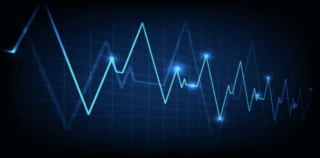ECG in gurgaon
ECG is quite essential test these days in our daily life , more important for people who are :
1. People who are above 60 years.
- Patients who are
- Patients who are
- Patients having cardiac
- General checkup
An Electrocardiogram (ECG) is a quick bedside test which assesses the electrical activity of the heart. It is cheap, non-invasive technique which provides the critical information about the heart rate, rhythm, and also assess the cardiac issue.
If a person is having chest pain, sweating , palpitations , ghabrat or any other symptoms, then ECG becomes a very important test to rule out if person is having any cardiac problem or not or needs any further test to rule out cardiac problem. ECG is easy test to perform and doesn’t take much time, maximum 5 – 10 minutes.
Technician who does ECG should be expert in doing ECG and in proper way. Sometimes serial ECG needs to be done if patient is having symptoms of cardiac problem but first ECG comes normal. Then repeat ECG after every 15 to 30 minutes is required to rule out any active changes going on in Heart.
Whitecoats Clinic situated in sector 42, Gurgaon provides the ECG services in Clinic and even at home. There we provides Doctor consultation along with the ECG service of needed by the patient.
Electrocardiogram (ECG)
Electrocardiograms (ECGs) allow you to check the rhythm and electrical activity of your heart. An electrical signal is detected by sensors attached to the skin when the heart makes its beats. An examiner examines these signals to see if they are unusual based on a machine’s recording. Heart specialists (cardiologists) and general practitioners, including your GP, may order an ECG if they suspect a heart problem. Whether it’s at a hospital, clinic, or your GP’s office, the test can be administered by a trained healthcare professional.
Despite having the same name, an ECG is not similar to an echocardiogram, which is known as a heart’s scan. Electrical signals in the heart are recorded during an electrocardiogram. Testing your heart with this simple and painless procedure can detect heart problems quickly and track your heart’s health. These tests are commonly carried out in a hospital room, a doctor’s office, or a clinic.
Purpose of ECG
To diagnose and monitor heart-related conditions, ECGs are commonly used in conjunction with other tests. It can be used to look over the symptoms of realizable heart issues like heart palpitations, chest pain, vertiginous, and breathing problems. An ECG can assist to detect as follows:
- Arrhythmias: where the heart beats very slowly, too fastly, or erratically.
- Coronary heart disease: where the supply of blood from the heart is obstructed or delayed by an enlargement of fatty matter.
- Heart attacks: where the blood’s supply to the heart is immediately stopped.
- Cardiomyopathy: where the walls of the heart become heavy or expanded.
People with heart conditions or who are taking medications that may harm the heart can also undergo a series of ECGs over time.
Procedure of ECG
ECGs can be performed in a variety of ways. Electrodes are generally attached to your chest and arms using small, sticky sensors. A recording machine is then connected to these sensors through wires.

Preparing for the test does not require any special skills. There is no need to restrict your diet. You may have to wash or shave your chest before the electrodes are attached. If hospital gowns are offered, you will be covered once electrodes are placed. If you’re already hospitalized, you can return to the ward after the test, which usually lasts only a few minutes.
ECGs types
The three crucial types of ECGs are listed as follows:
- A resting ECG
- A stress or exercise ECG
- An ambulatory ECG (Holter monitor)
The ECG type which you have to rely on is based on your guesses heart problems and your symptoms. For an instance, a stress or exercise ECG can be suggested only if your symptoms are activated by physical activity. Moreover, an ambulatory ECG or Holter monitor can be more applicable if your symptoms are unsure and take place in aimless and tiny episodes.
Obtaining your results
An ECG recording machine will display your rhythm of the heart and the electrical activity in a form of a graph demonstrated either electronically or paper-printed. When it comes to an ambulatory ECG, the ECG machine will save your heart’s information electronically which can be used by your doctor once the test is finished. You may want to look into the hospital or clinic several days later to talk about your ECG results with your doctor.
Are there any hazards or complications?
An ECG is a fast, secured, and pain-friendly test. The electricity will not be passed into your body instead it’s brought off. You can feel some displeasure when the electrodes are cleared away from your skin. Furthermore, few people can face lenient rash where the electrodes are affixed. A stress or exercise ECG is carried out beneath the manageable conditions. The person undergoing the test will cautiously check you, and they will put an end to the test if you face any risk.


